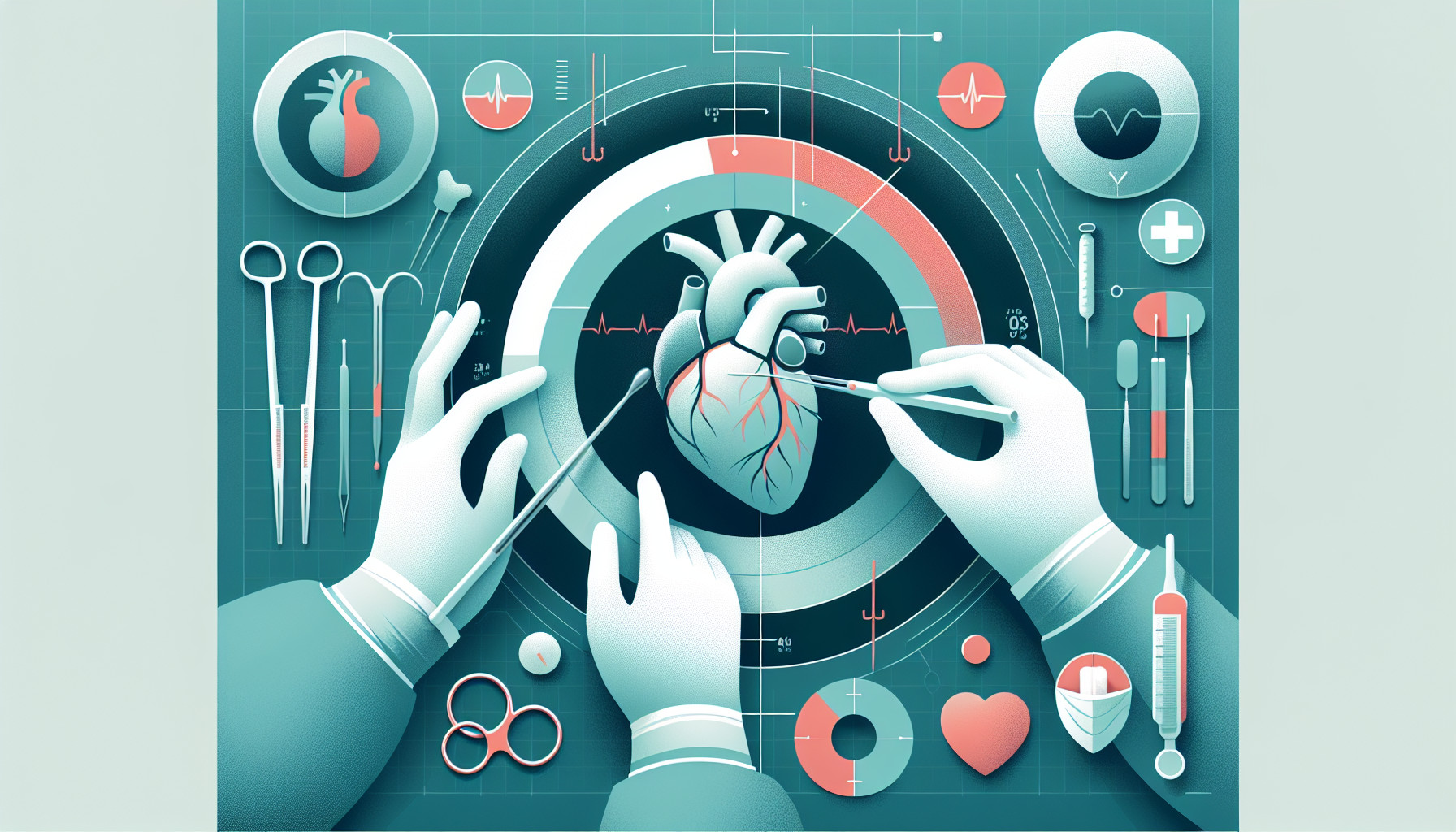Our Summary
Catheter ablation is a non-drug treatment for irregular heartbeats. It can be performed under different levels of sedation or anesthesia, and the choice of sedation method can greatly impact the success rate of the treatment and the potential complications during the procedure. For patients who are only sedated, the procedure can be extremely painful, and most complications are related to the sedation methods. As a result, anesthesiologists are becoming more involved in these procedures to ensure patients receive the appropriate level of care. This paper discusses what anesthesiologists need to know about catheter ablation and the issues that can arise during the procedure.
FAQs
- What is catheter ablation and what is it used for?
- How does the choice of sedation method impact the success rate of cardiac ablation?
- Why are anesthesiologists becoming more involved in catheter ablation procedures?
Doctor’s Tip
One important tip a doctor might tell a patient about cardiac ablation is to follow all pre-procedure instructions provided by the medical team. This may include fasting before the procedure, adjusting medications as directed, and informing the medical team of any allergies or health conditions. Following these instructions can help ensure the procedure goes smoothly and reduces the risk of complications.
Suitable For
Patients who are typically recommended for cardiac ablation are those with certain types of irregular heartbeats, such as atrial fibrillation, atrial flutter, supraventricular tachycardia, and ventricular tachycardia. These patients may have symptoms such as palpitations, dizziness, chest pain, or shortness of breath that are not controlled with medication. They may also have failed previous treatments such as medication or cardioversion.
Additionally, patients who have a high risk of complications from their irregular heartbeats, such as those with structural heart disease or a history of heart failure, may also be recommended for cardiac ablation. Other factors that may influence the decision to undergo cardiac ablation include the frequency and severity of symptoms, the impact on quality of life, and the patient’s overall health and medical history.
It is important for patients to discuss their symptoms and treatment options with their healthcare provider to determine if cardiac ablation is the right choice for them. The procedure is generally safe and effective, but like any medical procedure, there are risks and potential complications that should be considered.
Timeline
Consultation: Before the cardiac ablation procedure, the patient will have a consultation with their cardiologist to discuss the treatment plan, risks, benefits, and alternatives.
Pre-procedure preparation: The patient will be instructed to avoid eating or drinking for a certain period of time before the procedure. They may also need to stop taking certain medications.
Day of the procedure: The patient will arrive at the hospital or outpatient facility and be prepped for the procedure. They will be hooked up to monitors to track their heart rate and blood pressure.
Catheter insertion: During the procedure, catheters will be inserted through a vein in the groin and threaded up to the heart. The cardiologist will use these catheters to map the heart’s electrical system and identify the area causing the irregular heartbeat.
Ablation: Once the problematic area is identified, the cardiologist will deliver energy (such as heat or cold) through the catheter to destroy the tissue causing the irregular heartbeat.
Post-procedure recovery: After the ablation is completed, the patient will be monitored in a recovery area for a few hours. They may experience some discomfort at the catheter insertion site.
Follow-up: The patient will have follow-up appointments with their cardiologist to monitor their heart rhythm and overall health. They may also need to make lifestyle changes or take medications to prevent future irregular heartbeats.
What to Ask Your Doctor
What specific type of irregular heartbeat (arrhythmia) do I have that requires cardiac ablation?
What are the risks and potential complications of cardiac ablation?
What is the success rate of cardiac ablation for my specific condition?
How many cardiac ablation procedures have you performed, and what is your success rate?
What sedation or anesthesia options are available for the procedure, and which do you recommend for me?
How long will the procedure take, and how long will I need to stay in the hospital afterwards?
What is the recovery process like after cardiac ablation, and when can I expect to return to normal activities?
Are there any lifestyle changes or medications I will need to take after the procedure?
How often will I need follow-up appointments or monitoring after cardiac ablation?
Are there any alternative treatments or procedures that could be considered for my condition?
Reference
Authors: Saito T, Asai T. Journal: J Anesth. 2025 Aug;39(4):630-636. doi: 10.1007/s00540-025-03489-8. Epub 2025 Apr 1. PMID: 40169436
